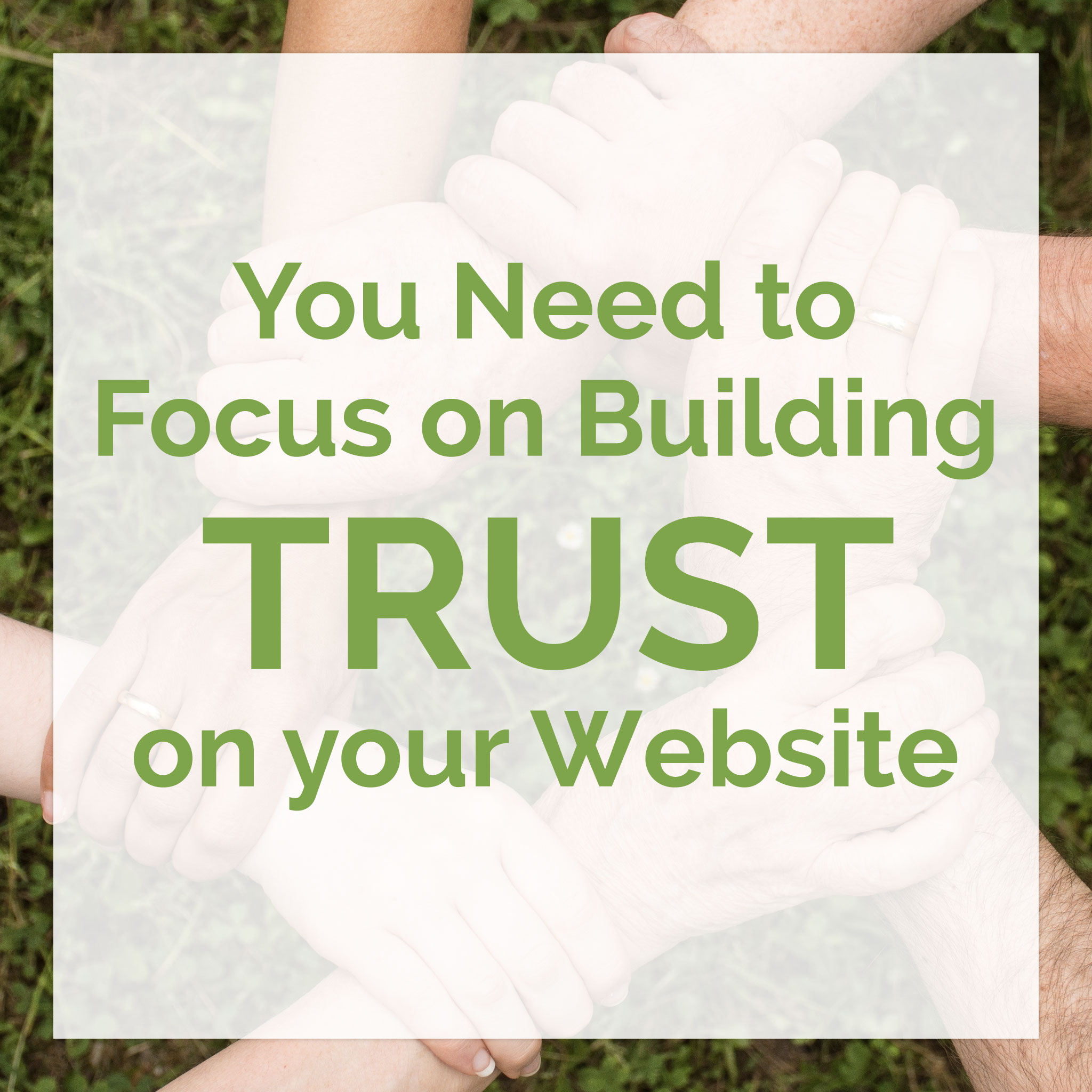Trust. It’s a firmly held belief that someone is truthful and reliable. It’s what all human relationships are built around. But your website isn’t a person, so why is it important that it is used to build trust?
We’ve had to convince clients that this should be one of the main purposes of their website, and we’re sure to always include a trust-building journey in the user journeys we create for websites. By building trust between a visitor and your website, you’re essentially building trust between that person and your business. You want the potential customer or client to know that they aren’t going to be left high and dry if they try to purchase a product from you or attempt to use one of your services.
So, what can you do to help build that necessary trust with someone who is visiting your website?
Include Social Proof and Testimonials That Show You’re Trustworthy
Social proof is also known as “informational social influence” (source) – it describes how people look at other people they consider more knowledgeable about a topic of information for appropriate behaviour in a given situation. What does this mean for you? Someone who has used your products or services is going to be knowledgeable about your company and your offerings. Use this to your advantage! Bring in any posts or reviews they make on social media to your website, along with a link back to their original post.
If you can’t get links to social media posts, testimonials can work wonders too. But (and I feel like this should be common sense, however I once had a client who wanted to do this!) make sure they are real testimonials, and not something your marketing team has written up. It helps if you include the person’s name, photo, and (if you’re selling B2B) company name. Want something a little more unique? Make videos of the testimonials – this also helps reinforce that these testimonials are coming from real people.
Ensure Your Website is Secure
This is going to be our one technical recommendation in our list.
It’s been years since Google Chrome has started warning people whenever they go to a website that doesn’t have an SSL certificate, so it’s surprising that there are still a number of websites that still don’t have SSL certificates or websites that are fully secure. Make sure your website isn’t one of them!
The little lock in the top of a website address bar (see image below) shows that a website protects data that is submitted while it travels through the Internet. That could be anything from a contact form submission, to sending credit card information to purchase a product, to updating account information, etc.

Most website hosts can install an SSL certificate on your website – depending on the web host this may be free or it may cost something. If you don’t have one already, you’ll need to get your website host to install it for you, and you may need to update all of your website links to reflect the new secure protocol. (Need help with this? Reach out to us to chat.)
Show Your Face
I know, a lot of us hate photos of ourselves. But they help prove that you are real and authentic, and there’s something about putting a face to a name that helps us automatically trust someone a little bit more.
Whether you’re a solopreneur running your own show, or whether you’re a part of a large team of employees, adding photos of yourself and/or your team can go a long way! These can either be professional headshots or more candid in-the-moment photographs. People prefer doing business with a person instead of a faceless entity, and it helps reinforce the concept that you believe in and are willing to stand behind your business.
Showcase Clients and The Value You Provided Them
This is similar to social proof in that it helps showcase people and/or businesses who are knowledgeable about a specific topic (your business).
Some companies like to do this by including a section of logos on their website for companies who rely on their products/services. However, we’ve found that it’s more effective if you also include how your product or service has solved a problem – this will often resonate a little better when someone is trying to determine if your product/service will work for them. Especially if the visitor has the same problem! Not only will this showcase the legitimacy of your product/service (remember, other real established businesses are using your product/service, so that’ shows your legitimate and builds trust), but it also allows the visitor to envision how you can help them.
These are four very simple ways to help build a visitor’s trust in your website and company. We’ve found that they’ve been very successful for our clients, and highly recommend them when we are working with clients on website projects. What other




